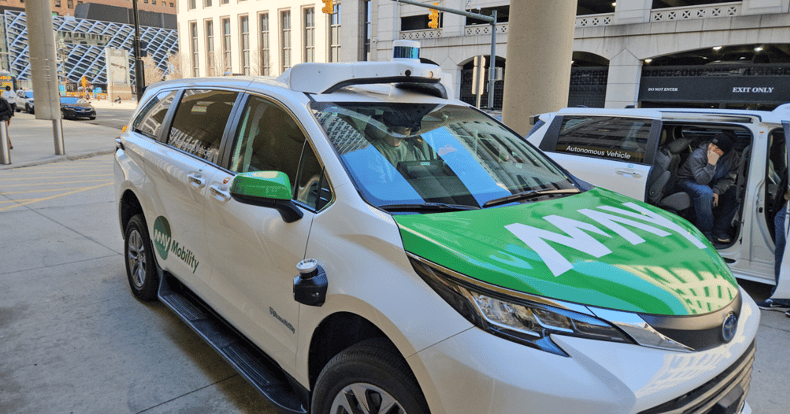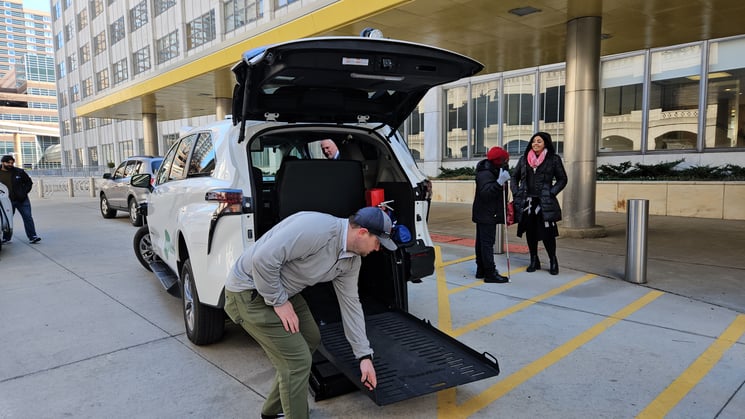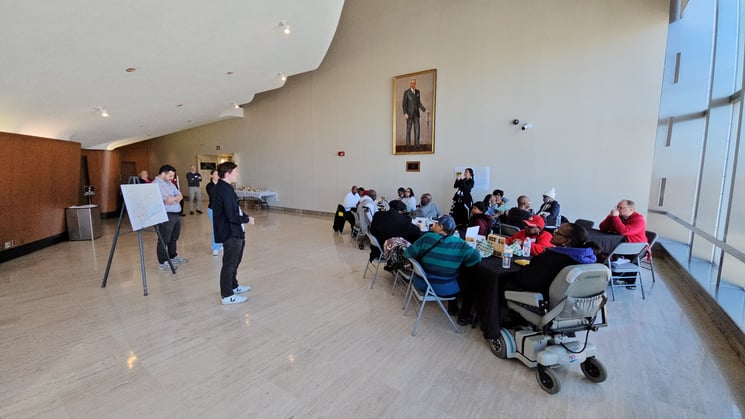Self-driving shuttles will soon bring Motor City residents to dentist, other critical appointments

For a city built on and for vehicles, it doesn’t seem like transportation should be an issue in Detroit.
However, one-third of Motor City residents don’t own a vehicle, and “four in 10 report missing work, an appointment or an outing due to lack of transportation.” When they need to leave their homes, they rely on public transit or other people to take them where they need to go. For many older adults and people with disabilities, options may be even more limited, especially if they do not meet paratransit eligibility requirements.
When it comes to oral health, these transportation challenges play out in tragic—albeit predictable—ways. If someone can’t make it to their appointment because they don’t have or can’t operate a vehicle, it doesn’t matter if they have a local dentist—they simply cannot access the care they need. People who may be at higher risk for dental disease, such as older adults and people with disabilities, may experience additional issues managing complex medical conditions, preventing pain and keeping teeth healthy enough to eat and speak without regular trips to the dentist.
New self-driving technologies may be part of the solution.
“If we really want to move the needle in terms of access to care and health equity, we need to embrace emerging initiatives—like the self-driving shuttle pilot—that use technology in new and surprising ways,” said Holli Seabury, EdD, executive director of the Delta Dental Foundation (DDF).
This year, the Detroit Office of Mobility Innovation will launch the Detroit Automated Driving Systems (ADS) Shuttle program to help older adults and people with disabilities get to critical locations. The self-driving shuttles will operate in two zones where upwards of 40% of Detroiters do not have cars and there are higher densities of Detroiters with disabilities.
 |
| A safety driver unfolds the wheelchair lift from the shuttle. (Photo by the City of Detroit Office of Mobility Innovation) |
A DDF grant of $206,000 will directly sponsor a shuttle to take these Detroiters to designated dentist locations. My Community Dental Centers’ (MCDC) Detroit office, which currently sees several hundred patients who are older adults or have disabilities, will be one of those locations.
“Anecdotally and from our social determinants of health questionnaire, we know that patients experience many transportation challenges,” said Dr. Deborah Brown, chief executive officer of MCDC. Brown noted that although Medicaid Health Plans are required to provide transportation assistance when requested by a Medicaid beneficiary, it often requires several days of advance notice and results in a one- to two-hour wait for pick up. “It’s not user friendly,” Brown said.
According to the Michigan Mobility Collaborative, which is leading the ADS program, riders will be able to book rides in advance or on demand through a mobile app, website or a call center for maximum accessibility.
Once a ride is scheduled, the shuttle will pick up the rider and up to two companions at their home, take them to their appointment and then return them home. Although the vehicles will be self-driving, they will still be staffed by a human operator at all times who can intervene, if necessary, or assist passengers.
The pilot won’t be going live without community input.
 |
|
A focus group provides input before a community ride along. |
“We conducted focus groups to understand how people feel about self-driving technology and what can be incorporated into service design to make it the best it can be,” said Konner Petz, senior mobility strategist at the City of Detroit. The results of these focus groups will be available this spring.
They’ve also trained community liaisons to engage with specific demographic groups, such as older adults and people with disabilities, to learn more about the needs and expectations of these particular communities.
Importantly, people will be able to “test drive” the shuttles before the pilot launches.
“Starting April 1 and running through May 31, the City of Detroit will host community ride-along events, which will give people the opportunity to experience automated vehicle technology,” Petz said.
The shuttle service is expected to be operational in June 2024—a few months earlier than initially expected.
“There is a huge opportunity for health care and transportation systems to work together to solve some of our transportation inequities at a system level,” Seabury said.
